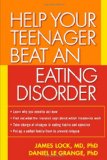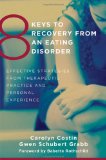|
The number of people who have serious eating disorders has increased immensely in the past years. There are more and more people who are extremely over or underweight or who have completely wrong eating habits.
Eating, body and weight are all topics that make both men and women insecure. It hardly ever happens that a men's or women's magazine does not touch on the issue of the perfect figure or a healthy diet. Young people with perfect bodies are always found on the front cover and in advertisements and are portrayed as standard. It is considered that only people who meet these standards are attractive, successful and beautiful. It is also becoming more common to find luxury articles in the shops specifically suited for the improvement of physical attraction.
People who are very sensitive and unstable suffer because of these ideals that society inflicts upon them.
The eating habits of a person can reflect a lot about their mental well-being. An even-tempered, relaxed and self-confident person eats enthusiastically and consciously. He stops eating when he is full. A person with psychological problems such as frustration, stress and other troubles reacts by indulging in food and sweets. He tries to "swallow" his problems, so to speak. It is common that people in these kinds of situations eat a lot more food and become so full that it is uncomfortable.
top  |
The following are the different types of eating disorders:
- Anorexia Nervosa (starvation and over-exercising)
- Bulimia (Binge-eating and then vomiting)
- Binge Eating Disorder
- Adiposity
top 

The Hunger Fix: The Three-Stage Detox and Recovery Plan for Overeating and Food Addiction, Pamela Peeke, Mariska van Aalst

Help Your Teenager Beat an Eating Disorder, James Lock MD PhD, Daniel Le Grange PhD

8 Keys to Recovery from an Eating Disorder: Effective Strategies from Therapeutic Practice and Personal Experience (8 Keys to Mental Health), Carolyn Costin, Gwen Schubert Grabb
|

